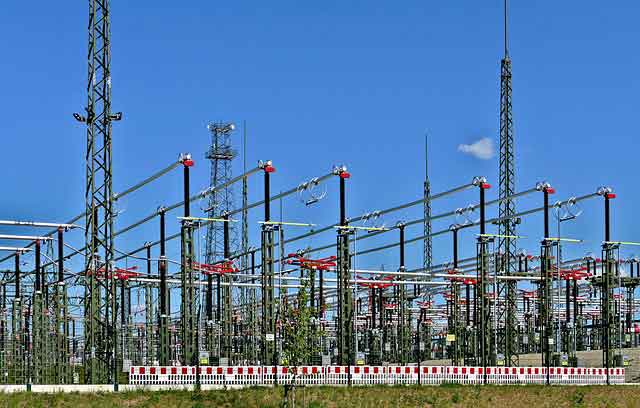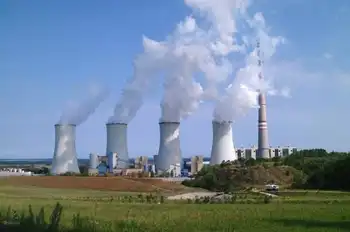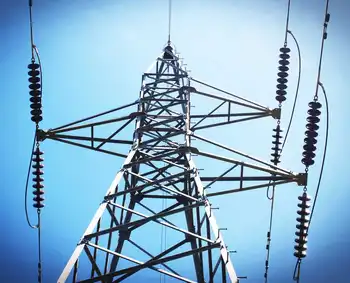Report calls for moratorium on new coal plants
By Knight Ridder Tribune
NFPA 70e Training - Arc Flash
Our customized live online or in‑person group training can be delivered to your staff at your location.

- Live Online
- 6 hours Instructor-led
- Group Training Available
The report recommends the county Board of Health support a statewide moratorium on building permits for coal power plants until the state enacts more stringent air pollution control measures. Such suggestions, if enacted, could kill LS Power's proposal for a 750-megawatt coal power plant in northeast Waterloo.
The report, authored by William Stigliani, was presented this morning to the Black Hawk County Board of Health. Stigliani is director of University of Northern Iowa's Center for Energy and Environmental Education, but worked on the study as a private consultant. The report concentrated on the proposed plant's emissions of particulate matter - tiny airborne pollutants created by things like dirt and soot.
Particulates have been linked to asthma, bronchitis, heart attacks and other pulmonary diseases, including thousands of premature deaths each year.
"A 750 megawatt coal-fired power plant is a large emitter of particulate matter," Stigliani wrote. "For a plant located several miles east of the city of Waterloo, emissions will add to already high PM (particulate matter) concentrations and add to the a ready existing risk of pulmonary and cardiovascular disease prevalent in the county. "Individual risk will be highest for county residents living or working in close proximity to the plant," Stigliani wrote.
Approximately 1,100 people live, and 6,500 people work, within a 6-square-mile area around the site. John Deere's East Donald Street Tractor Works and the Tyson Fresh Meats plant are in close proximity to the proposed power plant site.
The report counters LS Power's common defense of the plant's emissions - that modern plants are much cleaner than older ones and meet federal pollution standards - by pointing out federal standards set nearly two years ago by the EPA went against expert recommendations from both inside and outside the agency. After the decision, the EPA was widely criticized and accused of putting politics ahead of science.
The report explained in detail that recommendations for more stringent particulate limits were made by a range of scientists, including a 12-member independent panel of experts from several specialties tapped by the EPA to study the issue.
Stigliani argues most scientists agree adverse health effects exist well below the federal standards, and the Black Hawk County Health Department should advocate that Iowa enact California's annual average particulate matter standards. The federal annual average standard for fine particles - 15 micrograms per cubic meter - remain unchanged since 1997. The California Air Resources Board set its state's annual limit at 12 micrograms per cubic meter.
The report also notes African-Americans in Black Hawk County, already 30 percent more likely to be hospitalized for asthma than other Iowans, may suffer disproportionately from the proposed plant's pollutants.
One of the power plant's leading opponents, Cedar Falls City Council member Kamyar Enshayan, also works in the CEEE at UNI. But Stigliani, unlike Enshayan, has not actively participated in any public activities opposing the plant.
Stigliani also has said any CEEE employees taking such a position have done so individually and not on behalf of CEEE. LS Power has not participated in some public forums on the power plant at the CEEE or included involvement by its staff individually.
Elk Run Energy Associates, a subsidiary of New Jersey-headquartered LS Power, has donated a half million dollars to two organizations that work in Waterloo's black community - KBBG-FM and Highway 63 Gateway Community Development Corp.
The report's other recommendations include:
- Black Hawk County Board of Health should administer its own air quality monitoring program, in conjunction with the Iowa Department of Natural Resources and Iowa Department of Public Health.
- Iowa Department of Natural Resources and Iowa Department of Public Health should incorporate public health standards in the permitting, compliance and regulatory process governing Iowa air standards.











